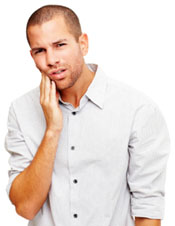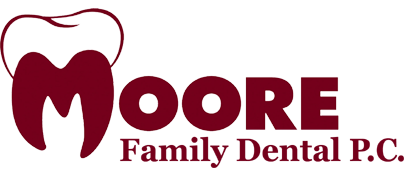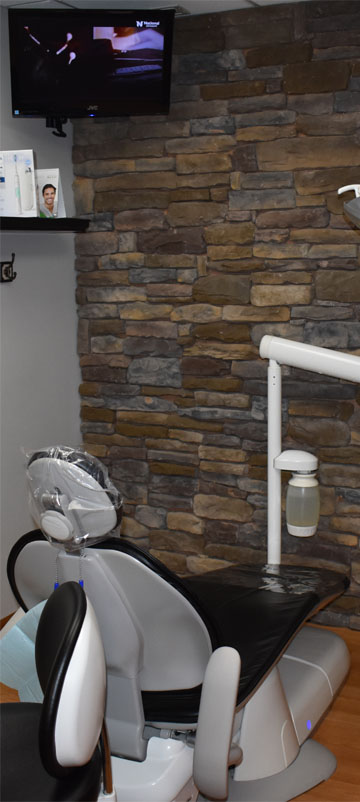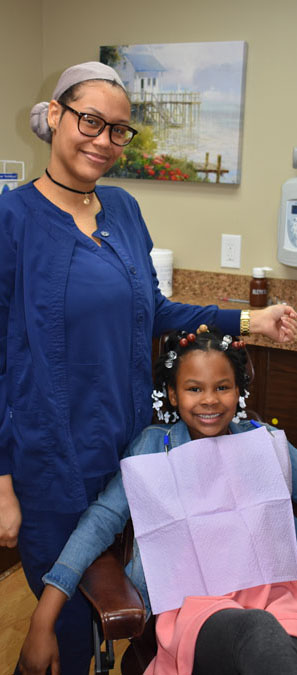 Do you grind your teeth? Even if you say no, the answer might actually be yes. The reason for this is that people often grind their teeth while sleeping, so they’re not even aware they are doing it.
Do you grind your teeth? Even if you say no, the answer might actually be yes. The reason for this is that people often grind their teeth while sleeping, so they’re not even aware they are doing it.
Fortunately, there are telltale signs of teeth grinding, which is also known as bruxism. If you have any of the signs or symptoms listed below, mention it to the staff at Moore Family Dental. However, rest assured that Dr. Moore, Dr. Redmin, and the entire staff, as your partners in achieving excellent dental health, are always alert for these and other issues that may indicate the presence of bruxism or any other problems.
The Mayo Clinic notes that signs and symptoms of bruxism may include:
- Teeth clenching or grinding, which may be loud enough to awaken your sleep partner
- Teeth that are worn down, flattened, fractured or chipped
- Worn tooth enamel, exposing deeper layers of your tooth
- Increased tooth sensitivity
- Jaw pain or tightness in your jaw muscles
- Tired jaw muscles
- Earache — because of severe jaw muscle contractions, not a problem with your ear
- Headache or chronic facial pain
- Damage from chewing on the inside of your cheek
- Indentations on your tongue
Parents should be aware that children sometimes grind their teeth; this generally occurs “at two peak times – when their baby teeth emerge and when their permanent teeth come in. Most children lose the teeth grinding habit after these two sets of teeth have come in more fully.”
Aside from the fact that it may cause jaw pain, grinding your teeth can be harmful in a variety of ways. If you think about grinding teeth for an extended period, the results of chronic bruxism are not surprising. Teeth may get broken, become loose, fall out, or get so worn down that they need to be replaced or repaired. The possibilities of damage resulting from grinding teeth don’t end there: “It can also affect your jaws, result in hearing loss, cause or worsenTMD/TMJ, and even change the appearance of your face.”
If you grind your teeth, the dentist will discuss options with you. A mouth guard is one option; in addition, the dentist may inquire about your stress or anger level to help you figure out whether that could be one of the reasons that you are grinding your teeth. If so, it may be suggested to seek professional stress counseling or anger management therapy. Finally, the dentist may suggest reducing or avoiding certain foods or beverages that may predispose you to grinding your teeth.
Bruxism, or teeth grinding, is a common condition. It is very treatable; if you have any of the signs or symptoms of it, it is important to discuss the issue with the staff at Moore Family Dental. Similarly, if the staff raises the topic with you, you should not be unduly alarmed but you should treat the situation seriously because it has the potential to affect your overall health.



